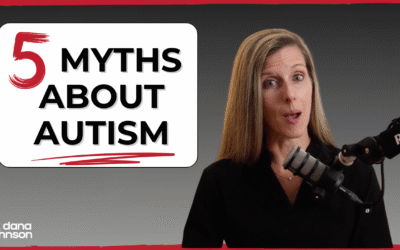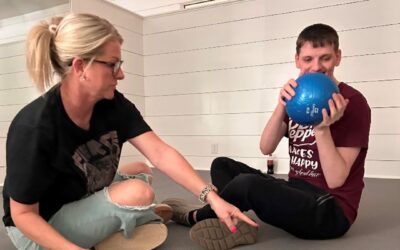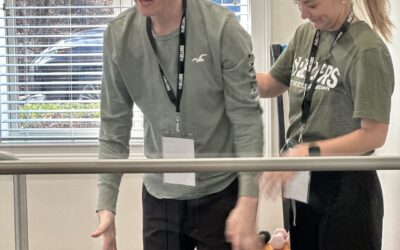Blog
The 5 Things We Get Wrong About Autism
Have you ever been told that your autistic child — whether they’re 5 or 25 — can’t really learn or understand the world around them? Maybe you’ve heard doctors, teachers, or even therapists say, “That’s just autism,” as if every challenge your child faces is fixed and...
Why Traditional Autism Therapy Fails – and What Actually Works
Does your child struggle to follow directions? Maybe it seems like they’re ignoring you, being lazy, or even defiant. Do simple tasks—like getting dressed or getting in and out of the car—feel like a daily battle? What if I told you this isn’t about behavior at all,...
What is Whole Body Apraxia?
In this video, Dr. Dana Johnson, PhD, explains Whole Body Apraxia—a brain-body disconnect that affects how kids with autism move, respond, and interact with the world. Does your child struggle to follow directions, stay regulated, or complete simple tasks like getting...
Reflex Integration for Kids with Autism & Whole-Body Apraxia
When we watch our children play, write, or communicate, it’s easy to focus on the visible skills. But beneath every coordinated step, every reach, and every gesture lies a hidden foundation: reflexes. These automatic movements, present from birth, are crucial for...
Presuming Competence: How Belief Unlocks Potential
Seeing the Ability: The Power of Presuming Competence When it comes to children with autism or other disabilities, one of the most life-changing decisions we can make is to assume they are capable—capable of thinking, learning, and understanding, even if they can’t...
Regulation and Co-Regulation in Children with Autism
Regulation Starts with You: How to Support Your Child’s Nervous System If your child shifts from calm to overwhelmed in a flash—or seems to have big emotional reactions to small changes—you’re not alone. Many children with autism, sensory processing issues, or motor...
Exercise Improves Motor Planning in Kids with Autism
How Exercise Transforms the Brain-Body Connection in Kids with Apraxia If your child has autism or whole-body apraxia, you may have seen how hard it is for them to control their movements. They might want to grab a toy, stand up, or walk over to you—but their body...
What You’re Not Told About Autism
What You’re Not Told About Autism: A Parent’s Guide to the Motor Connection When people hear the word autism, they typically think of behaviors: limited eye contact, sensory sensitivity, repetitive movements, or delayed speech. While these traits are part of the...
Rethinking Autism Therapy: Why Motor Skills Matter More Than You’ve Been Told
Why motor skills matter more than behavior in autism therapy If you’re raising a child on the autism spectrum, chances are you’ve already encountered a list of therapies: speech therapy, occupational therapy, ABA (Applied Behavioral Analysis), and maybe even physical...
Motor Planning in Autism: What Every Parent Should Know
Why Motor Planning in Autism Often Gets Overlooked When autism is discussed, the conversation typically centers around speech delays, social differences, or behavioral challenges. But there’s another critical piece of the puzzle that’s often ignored: motor planning...
Why Does My Child Need the Spellers Method if They Can Talk?
A common question I hear from parents is: "Why would my child need the Spellers Method if they can already talk?" This is especially true for parents of children with unreliable speech—those who can speak, but struggle to express themselves clearly or consistently. I...
How Is Spellers Method Different From Other Communication Methods?
A common question I receive is: "How is Spellers Method different from other spelling-based communication methods?" This is an important question—especially considering that Spellers Method is emerging as a trusted approach for nonspeaking, minimally speaking, or...












